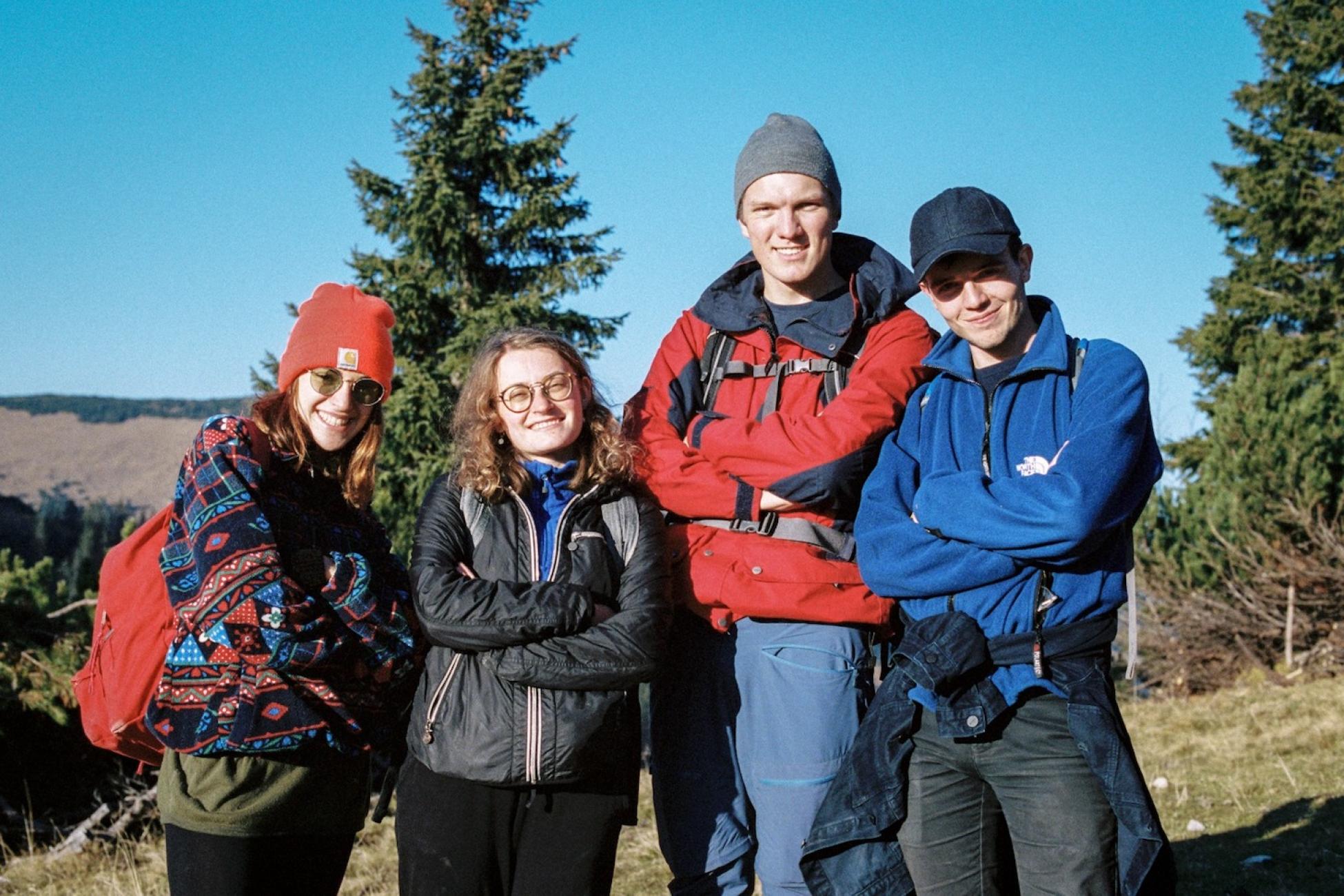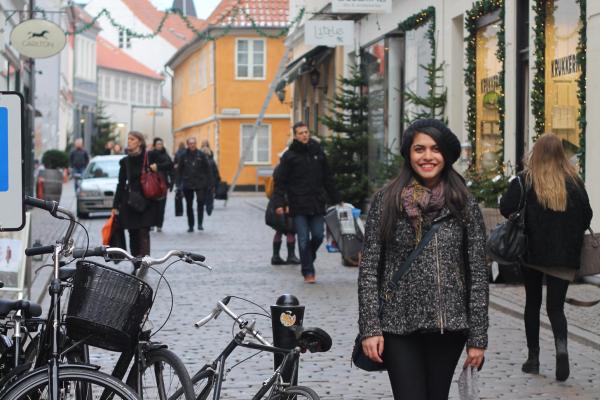My problem with the concept of regret is that it’s always easy to say you would have done something differently afterwards, but I think that how you feel and what you do in the moment is sort of inevitable. I therefore have a tendency to try and avoid feeling regret, and rather take “mistakes” as a learning experience.
That being said, here is one thing I would do differently if I were to go on exchange again: Let loose more.
To be honest, my first two months in Germany were far from worry-free and totally cool. More often than not, I was anxious, lonely and tired. This is partly because of Germany’s hefty bureaucracy. It was pretty stressful navigating the sea of documents necessary for settling into Germany. Also, moving to another country where you know no one is undeniably difficult. I had to buy a whole bunch of cooking and cleaning supplies, create a phone and bank account, and much more, while also trying to meet new people, acclimate to a new culture and create meaningful relationships.
If I ever go abroad again, I will not fall into this same negative trap.
However, in some ways I was also the cause of my own misery. The first few months of my exchange, I really didn’t take advantage of Munich’s offerings. I had a lot of free time seeing as my course load wasn’t heavy and it wasn’t exam season, but I was so caught up in my own head (thinking about things that were stressing me out and being homesick) that I wasn’t enjoying the moment. I wasn’t exploring Munich’s different neighbourhoods, trying out local restaurants, discovering different parks and just generally enjoying life. I felt handicapped by the fact that I didn’t have a ton of close friends to do things with. (I had met several great people but we weren’t yet close (which is, well, very normal considering close bonds take time to build).
I felt I only started truly experiencing my exchange by the end of my first semester. (Thank god I was staying a second semester to make up for some of my lost time!)
But get this: I also think my experience was normal. I was following a learning curve, an adaptation period. Now, I regret my bad attitude and lacklustre city life, but I honestly don’t think I could have avoided this. I now know for future reference that the first few months abroad involve a lot of bureaucracy and annoying tasks. I know that at first you’re on your own and it takes time to create friendships.
But if I ever go abroad again, I will not fall into this same negative trap. I know what to expect. I have developed better coping mechanisms and a stronger sense of independence that will allow me to just enjoy my time.
On another note, there are a lot more things I did right than wrong.
Here is the best thing I took away from my exchange: The art of making friends.
This might seem menial or even inconsequential. But trust me, it is not. Many of us (including myself before the exchange) think we have good social skills. Whether you do or not, going on an exchange teaches you so much about how to interact with people in a positive and meaningful way.
Going on an exchange teaches you so much about how to interact with people in a positive and meaningful way.
I met exchange students from all over the world who come from extremely different cultures. I quickly learned that good North American social skills do not necessarily translate well to other cultures. For example, Germans may think you are too loud and “out there.” Therefore, I learned to adapt.
I’m happy I put the effort to meet people from all sorts of cultures who speak all sorts of languages, rather than just staying with my group of Anglophone friends. I obviously befriended some awesome English-speaking people, but I also hung out with people from Norway, Spain, China, Colombia, Holland, France, Israel and many more.
This obviously doesn’t apply to all exchange students, but generally speaking, people with the same mother tongue tend to group together. It makes a lot of sense; it’s super tiring to always be speaking English (generally the common international language) when it’s not your first language. One’s language is also an anchor to your culture and can allow you to find comfort in a foreign land. However, I think this narrows the scope of one’s experience. This prevents one from seeing other people’s perspective and maybe feeling uncomfortable.
Going on exchange has drastically improved my cross-cultural understanding and communication skills. Generally, I feel more confident and comfortable talking to strangers and creating meaningful bonds with new people. I also believe I am now better at making people feel more at ease around me.
Ultimately, I am most happy that this exchange allowed me to be uncomfortable, and to learn and grow from that feeling. I think being uncomfortable more often than not stems from a clash between your worldview and someone else’s. And if you remain open, this clash can allow for great discussion, mutual understanding and personal growth. An exchange in another country forces you to experience an abundance of clashes.
Add this article to your reading list




